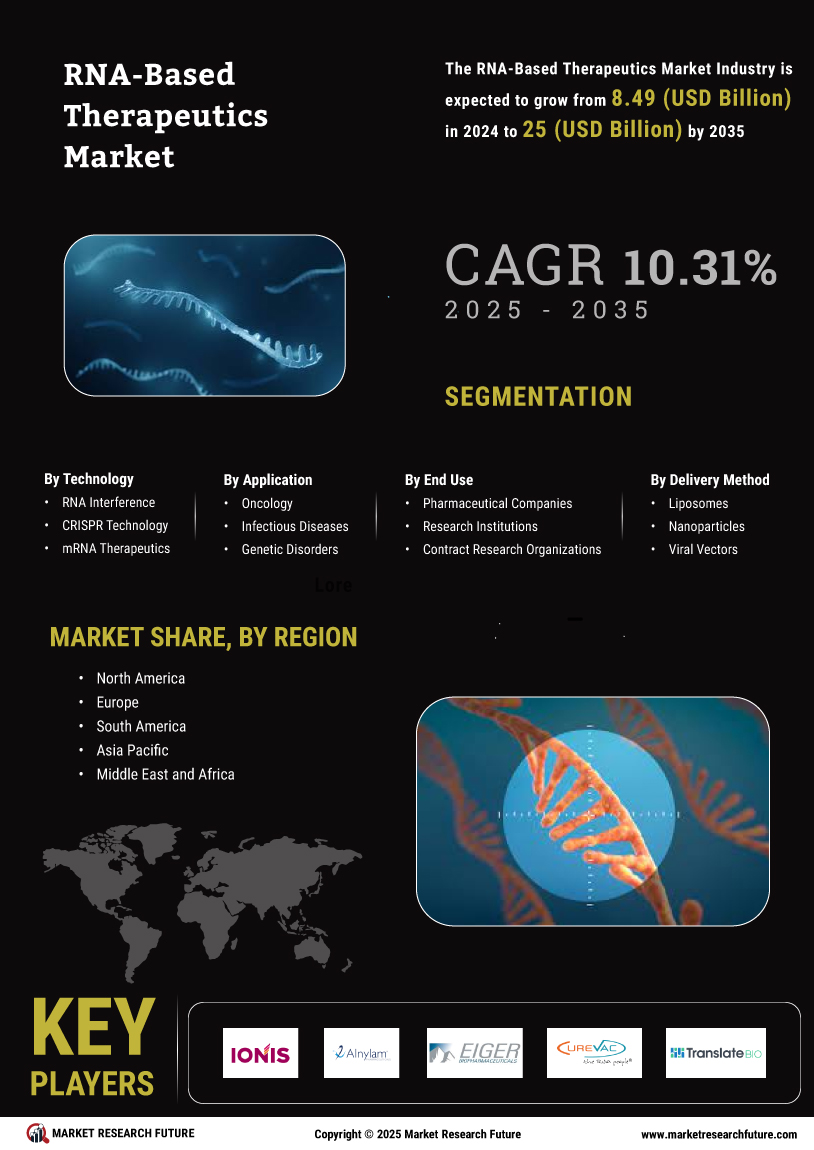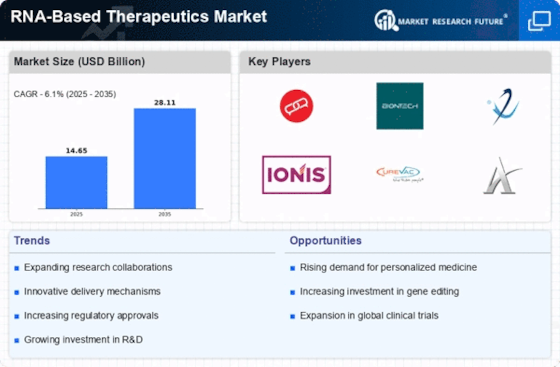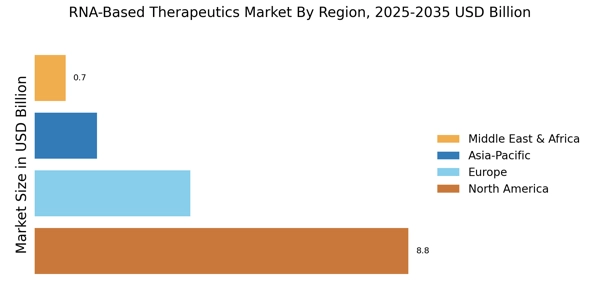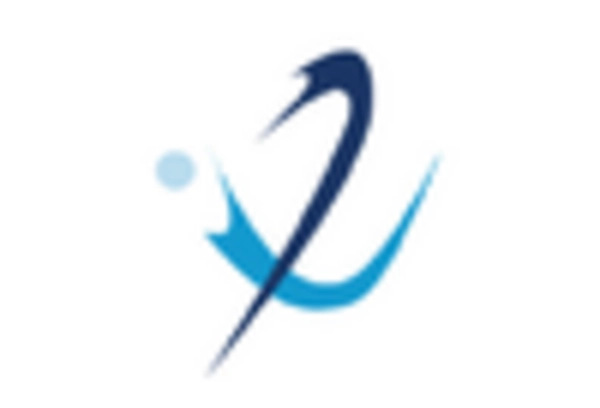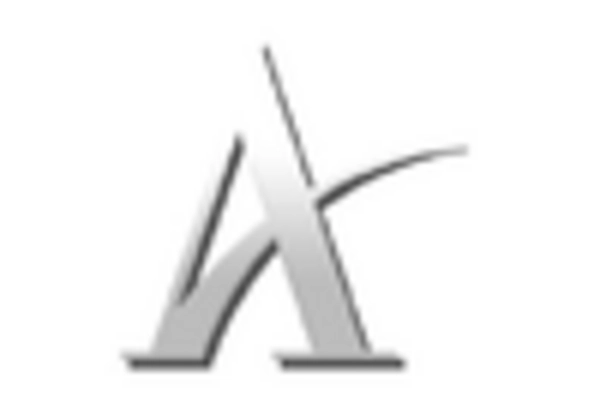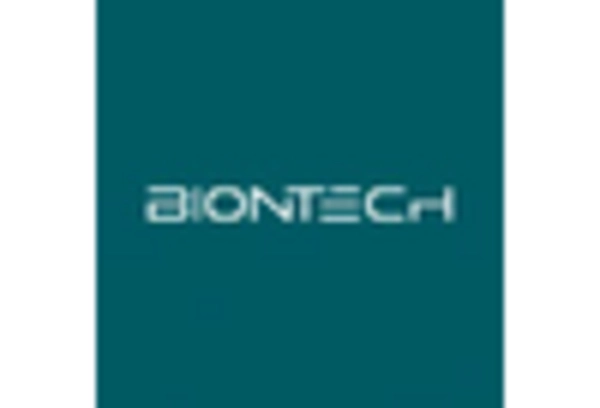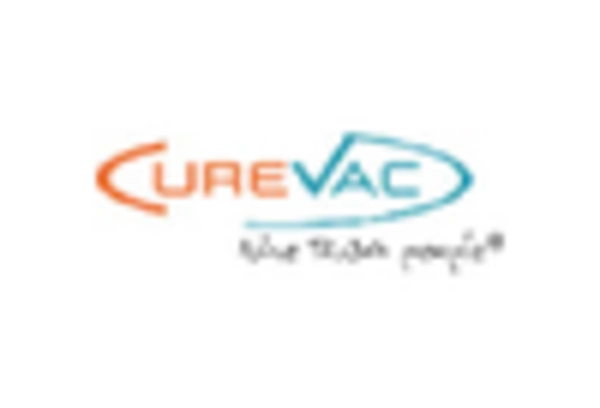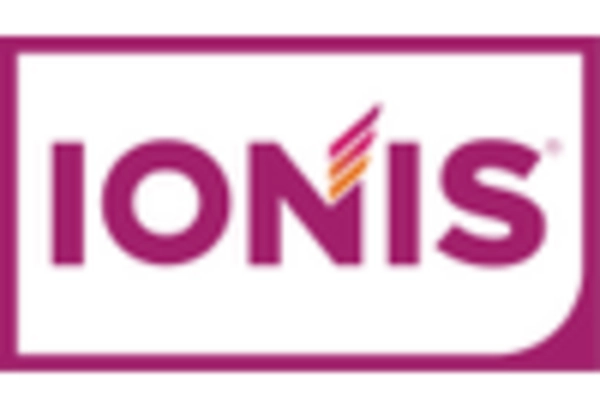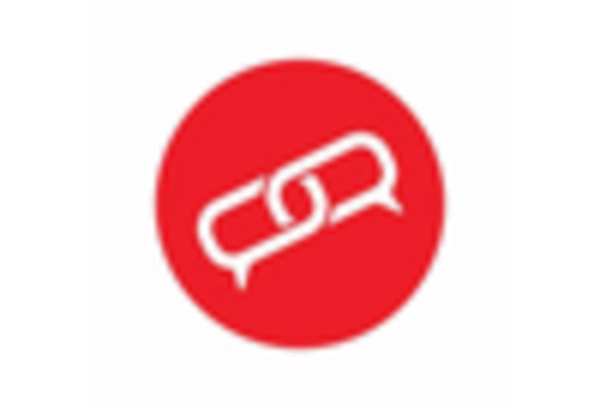Increased Funding for RNA Research
The surge in funding for RNA research is a significant catalyst for the RNA-Based Therapeutics Market. Governments and private investors are recognizing the potential of RNA-based therapies, leading to increased financial support for research initiatives. This influx of capital is facilitating the development of novel RNA therapeutics and accelerating clinical trials. As a result, the market is poised for rapid expansion, with funding levels expected to reach USD 8 billion by 2025. This financial backing not only supports innovation but also enhances collaboration between academic institutions and biotech companies, fostering a robust research ecosystem.
Growing Focus on Personalized Medicine
The shift towards personalized medicine is reshaping the RNA-Based Therapeutics Market. Tailored therapies that consider individual genetic profiles are becoming increasingly important in treatment protocols. RNA-based therapeutics, which can be designed to target specific genetic alterations, align well with this trend. The market is expected to expand as healthcare providers and researchers emphasize the development of personalized RNA therapies. This focus is likely to drive investments in genetic research and RNA technology, with projections indicating that personalized medicine could account for over 30% of the RNA therapeutics market by 2027.
Rising Prevalence of Genetic Disorders
The increasing incidence of genetic disorders is a primary driver for the RNA-Based Therapeutics Market. As genetic diseases become more prevalent, the demand for innovative treatment options rises. RNA-based therapies, particularly those targeting specific genetic mutations, offer promising solutions. For instance, the market for RNA therapeutics is projected to reach approximately USD 10 billion by 2026, reflecting a compound annual growth rate of around 12%. This growth is indicative of the urgent need for effective therapies that can address the underlying genetic causes of diseases, thereby enhancing patient outcomes and quality of life.
Regulatory Support for RNA Therapeutics
Regulatory bodies are increasingly supportive of RNA-based therapies, which is positively impacting the RNA-Based Therapeutics Market. Streamlined approval processes and favorable guidelines for RNA therapeutics are encouraging companies to invest in this sector. The establishment of clear regulatory pathways is likely to expedite the development and commercialization of RNA therapies. As a result, the market is expected to grow significantly, with the number of approved RNA-based products projected to double by 2028. This regulatory environment fosters innovation and instills confidence among investors, further driving market growth.
Advancements in RNA Delivery Technologies
Technological innovations in RNA delivery systems are significantly influencing the RNA-Based Therapeutics Market. Enhanced delivery mechanisms, such as lipid nanoparticles and viral vectors, facilitate the effective transport of RNA molecules to target cells. These advancements not only improve the efficacy of RNA therapies but also reduce potential side effects. The market is witnessing a surge in research and development efforts aimed at optimizing these delivery systems, which is expected to propel the market forward. As a result, the RNA therapeutics sector is anticipated to experience substantial growth, with investments in delivery technologies likely exceeding USD 5 billion by 2025.
